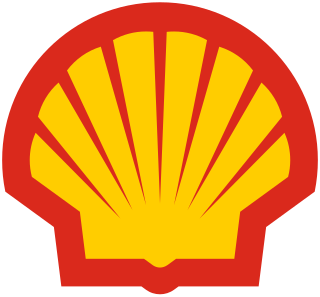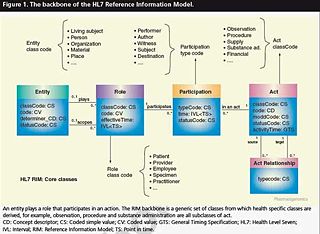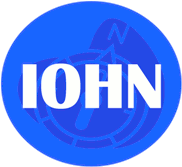Related Research Articles
An industry standard data model, or simply standard data model, is a data model that is widely used in a particular industry. The use of standard data models makes the exchange of information easier and faster because it allows heterogeneous organizations to share an agreed vocabulary, semantics, format, and quality standard for data. Organizations may save time and expense by using pre-existing data models instead of developing them in-house, although the process of making data conform to external models can also be a hindrance.

Shell USA, Inc. is the United States–based wholly owned subsidiary of Shell plc, a UK-based transnational corporation "oil major" which is amongst the largest oil companies in the world. Approximately 18,000 Shell employees are based in the U.S. Its U.S. headquarters are in Houston, Texas. Shell USA, including its consolidated companies and its share in equity companies, is one of America's largest oil and natural gas producers, natural gas marketers, fuel marketers and petrochemical manufacturers.
ISO 10303 is an ISO standard for the computer-interpretable representation and exchange of product manufacturing information. It is an ASCII-based format. Its official title is: Automation systems and integration — Product data representation and exchange. It is known informally as "STEP", which stands for "Standard for the Exchange of Product model data". ISO 10303 can represent 3D objects in Computer-aided design (CAD) and related information.
Data quality refers to the state of qualitative or quantitative pieces of information. There are many definitions of data quality, but data is generally considered high quality if it is "fit for [its] intended uses in operations, decision making and planning". Moreover, data is deemed of high quality if it correctly represents the real-world construct to which it refers. Furthermore, apart from these definitions, as the number of data sources increases, the question of internal data consistency becomes significant, regardless of fitness for use for any particular external purpose. People's views on data quality can often be in disagreement, even when discussing the same set of data used for the same purpose. When this is the case, data governance is used to form agreed upon definitions and standards for data quality. In such cases, data cleansing, including standardization, may be required in order to ensure data quality.
ISO/TC 211 is a standard technical committee formed within ISO, tasked with covering the areas of digital geographic information and geomatics. It is responsible for preparation of a series of International Standards and Technical Specifications numbered in the number range starting at ISO-19101. The Chair of the committee was 1994-2016: Olaf Østensen; during 2017-2018: Christina Wasström; and from 2019 Agneta Gren Engberg.
In information science, an upper ontology is an ontology that consists of very general terms that are common across all domains. An important function of an upper ontology is to support broad semantic interoperability among a large number of domain-specific ontologies by providing a common starting point for the formulation of definitions. Terms in the domain ontology are ranked under the terms in the upper ontology, e.g., the upper ontology classes are superclasses or supersets of all the classes in the domain ontologies.
The ISO 15926 is a standard for data integration, sharing, exchange, and hand-over between computer systems.
Simple Knowledge Organization System (SKOS) is a W3C recommendation designed for representation of thesauri, classification schemes, taxonomies, subject-heading systems, or any other type of structured controlled vocabulary. SKOS is part of the Semantic Web family of standards built upon RDF and RDFS, and its main objective is to enable easy publication and use of such vocabularies as linked data.
Gellish is an ontology language for data storage and communication, designed and developed by Andries van Renssen since mid-1990s. It started out as an engineering modeling language but evolved into a universal and extendable conceptual data modeling language with general applications. Because it includes domain-specific terminology and definitions, it is also a semantic data modelling language and the Gellish modeling methodology is a member of the family of semantic modeling methodologies.
Geospatial metadata is a type of metadata applicable to geographic data and information. Such objects may be stored in a geographic information system (GIS) or may simply be documents, data-sets, images or other objects, services, or related items that exist in some other native environment but whose features may be appropriate to describe in a (geographic) metadata catalog.

Enterprise modelling is the abstract representation, description and definition of the structure, processes, information and resources of an identifiable business, government body, or other large organization.
The ISO 15926 is an interoperability standard in the process industry. ISO 15926 includes the Work in Progress (WIP) database. WIP is available online and includes technical class descriptions of all the main equipment items, pipe, instruments, buildings, activities and anything else used in engineering, constructing, procuring, operating and maintaining process facilities.

Generic data models are generalizations of conventional data models. They define standardised general relation types, together with the kinds of things that may be related by such a relation type.
BORO is an approach to developing ontological or semantic models for large complex operational applications that consists of a top ontology as well as a process for constructing the ontology. It was originally developed as a method for mining ontologies from multiple legacy systems – as the first stage in an architectural transformation or software modernization. It has also been used to enable semantic interoperability between legacy systems. It is described in detail in. It is the analysis method used in the development and maintenance of the U.S. Department of Defense Architecture Framework (DoDAF) Meta Model (DM2), where a data modeling working group of over 350 members was able to systematically resolve a broad spectrum of knowledge representation issues.
ISO 8000 is the global standard for Data Quality and Enterprise Master Data. It describes the features and defines the requirements for standard exchange of Master Data among business partners. It establishes the concept of Portability as a requirement for Enterprise Master Data, and the concept that true Enterprise Master Data is unique to each organization.

Integrated Operations in the High North is a unique collaboration project that during a four-year period starting May 2008 is working on designing, implementing and testing a Digital Platform for what in the upstream oil and gas industry is called the next or second generation of Integrated Operations. The work on the Digital platform is focussed on capture, transfer and integration of real-time data from the remote production installations to the decision makers. A risk evaluation across the whole chain is also included. The platform is based on open standards and enables a higher degree of interoperability. Requirements for the digital platform come from use cases defined within the Drilling and Completion, Reservoir and Production and Operations and Maintenance domains. The platform will subsequently be demonstrated through pilots within these three domains.
Information governance, or IG, is the overall strategy for information at an organization. Information governance balances the risk that information presents with the value that information provides. Information governance helps with legal compliance, operational transparency, and reducing expenditures associated with legal discovery. An organization can establish a consistent and logical framework for employees to handle data through their information governance policies and procedures. These policies guide proper behavior regarding how organizations and their employees handle information whether it is physically or electronically.
POSC Caesar Association (PCA) is an international, open and not-for-profit, member organization that promotes the development of open specifications to be used as standards for enabling the interoperability of data, software and related matters.

ISO 25964 is the international standard for thesauri, published in two parts as follows:
ISO 25964 Information and documentation - Thesauri and interoperability with other vocabulariesPart 1: Thesauri for information retrieval [published August 2011] Part 2: Interoperability with other vocabularies [published March 2013]
IEC 61360, with the title "Standard data element types with associated classification scheme", is a series of standard documents defining a general purpose vocabulary in terms of a reference dictionary published by the International Electrotechnical Commission.
References
- 1 2 3 "MatthewWest - Ontolog Forum". ontologforum.org. Retrieved 2024-09-08.
- 1 2 "Matthew West - Professional Life". www.matthew-west.org.uk. Retrieved 2024-09-08.
- ↑ "Lesson 2". 15926.blog. Retrieved 2024-09-11.
- ↑ Batres, Rafael; West, Matthew; Leal, David; Price, David; Naka, Yuji (2005). "An upper ontology based on ISO 15926". 20: 1543–1548. doi:10.1016/S1570-7946(05)80099-9.
{{cite journal}}: Cite journal requires|journal=(help) - ↑ "Matthew West". www.matthew-west.org.uk. Retrieved 2024-09-08.
- 1 2 "Shell's 'Downstream One' reference data architecture (2008 No. 6)". oilit.com. Retrieved 2024-09-08.
- 1 2 Walters, Angela (2021-01-08). "New Year Honour for Matthew West OBE". www.cdbb.cam.ac.uk. Retrieved 2024-09-08.
- ↑ West, Matthew (2021-07-05). "Effective Information Management – defining your information requirements". Digital Twin Hub. Retrieved 2024-09-08.
- ↑ "Matthew West – nima". 2023-08-04. Retrieved 2024-09-08.
- ↑ "Honour for man who has dedicated his life to information management". 2020-12-30.